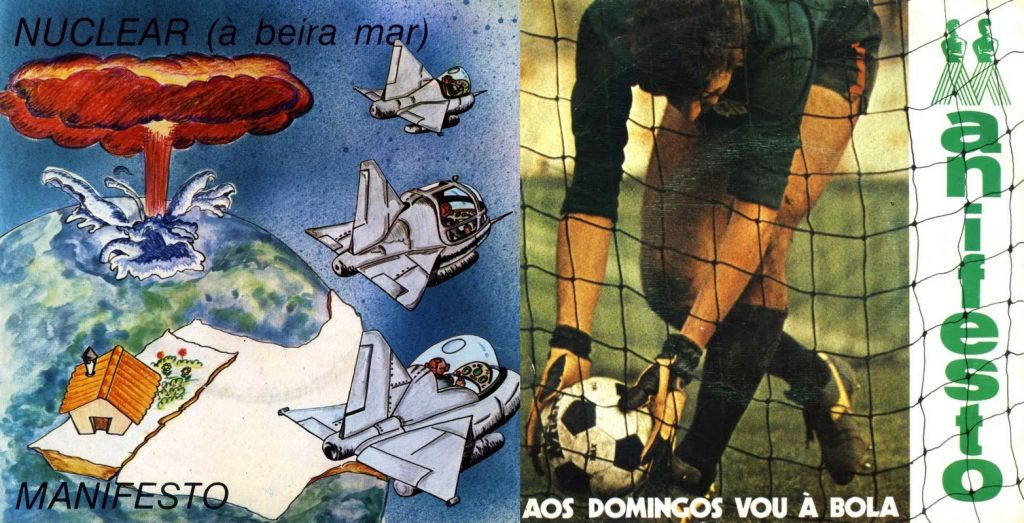Originally from Ançã, on the outskirts of Coimbra, and formed in 1977 by Aurélio Malva (vocals, guitar), João Luís (drums), José Tovim (bass, guitar, vocals) and Francisco Parreiral (keys, vocals), Manifesto began by livening up dances and parties, playing classics by The Beatles, The Rolling Stones, Pink Floyd, The Clash, Devo, The Police and U2.
However, they decided that they would not spend the rest of their lives playing other people’s music. At the turn of the 80s, when the so-called Portuguese rock boom occurred, they chose not to remain on the sidelines of the movement and took advantage of the first opportunity that came their way by competing in the Só Rock Festival, having won one of the competition’s qualifying rounds.
By performing well in the final, they opened the doors for the recording of two singles. From then on, there were two short years of intense activity, with appearances on radio and television, as well as shows all over the country alongside the biggest bands of the time. Those who attended still remember the show they held at the old headquarters of Ançã Futebol Clube, with the participation of Xutos e Pontapés, at that time, record label mates.
About them, António Duarte wrote, in the newspaper “Se7e”, that they are a band with interesting things to say, a surprise in the search for new paths for Portuguese rock. Belino Costa stated in the same newspaper that the Manifesto had made a decisive contribution to the politicization of rock, arguing that the theme “Are You a Free Man?” had been the first political manifesto of Portuguese rock.
Despite all this, in a country with mild customs, more accustomed to silence and consent, his message of resistance and indignation would not get through completely. The market would speak louder and, as happened with the vast majority of bands at that time, they did not survive the crisis, having ended their activities at the end of 1982.
The band’s line up remained unchanged from 1977 to 1981, the year in which keyboardist Jójó joined the band, replacing Francisco Parreiral.
The band got back together, keeping the same three members as always and including Miguel Moita as a guest keyboardist. Regardless of this meeting, José Tovim and Aurélio Malva continued to be linked to music at the time and would, many years later, be members of the Victor Jara Brigade.
That’s how it was born. But who would want to sell four pages of a newspaper separately??? Manifesto was the written word, commanded by António Sérgio who, at the time and on the radio (Comercial), did “Som da Frente” and “Lança Chamas”. It was published once a month and was presented as a hybrid project, where both the exploits of Diamanda Galás and William Gibson’s latest novel, “Neuromancer” were addressed.
In the curious list of collaborators there were names such as Ana Cristina Ferrão, António Sérgio, Nuno Diniz and Manuel Dias. Collaborations were also promised from the painter António Palolo, Rui Vasco, Jorge Lima Barreto, Chico “Wild Cat” Rocker and Vítor Rua. Nobody signed what they wrote. It still lasted a while!





